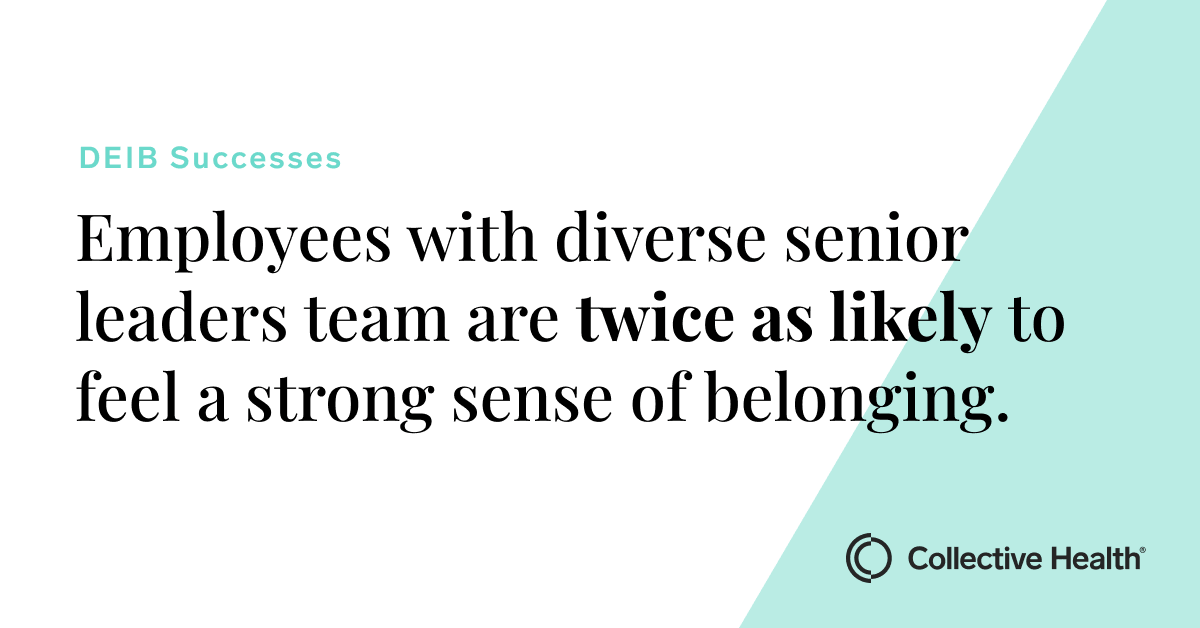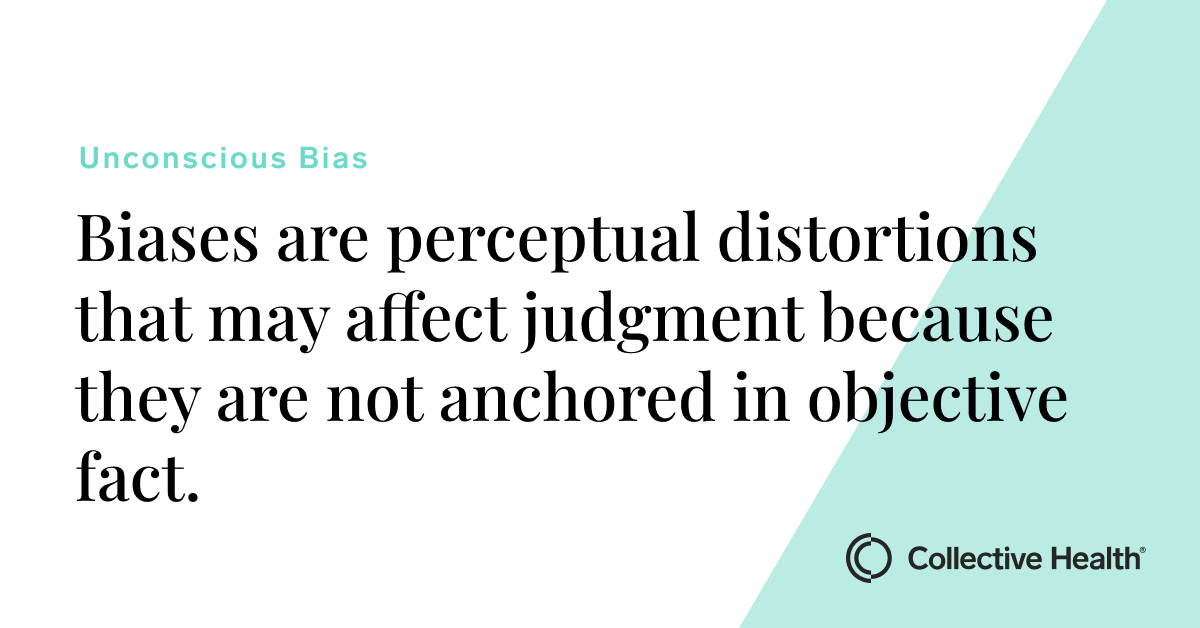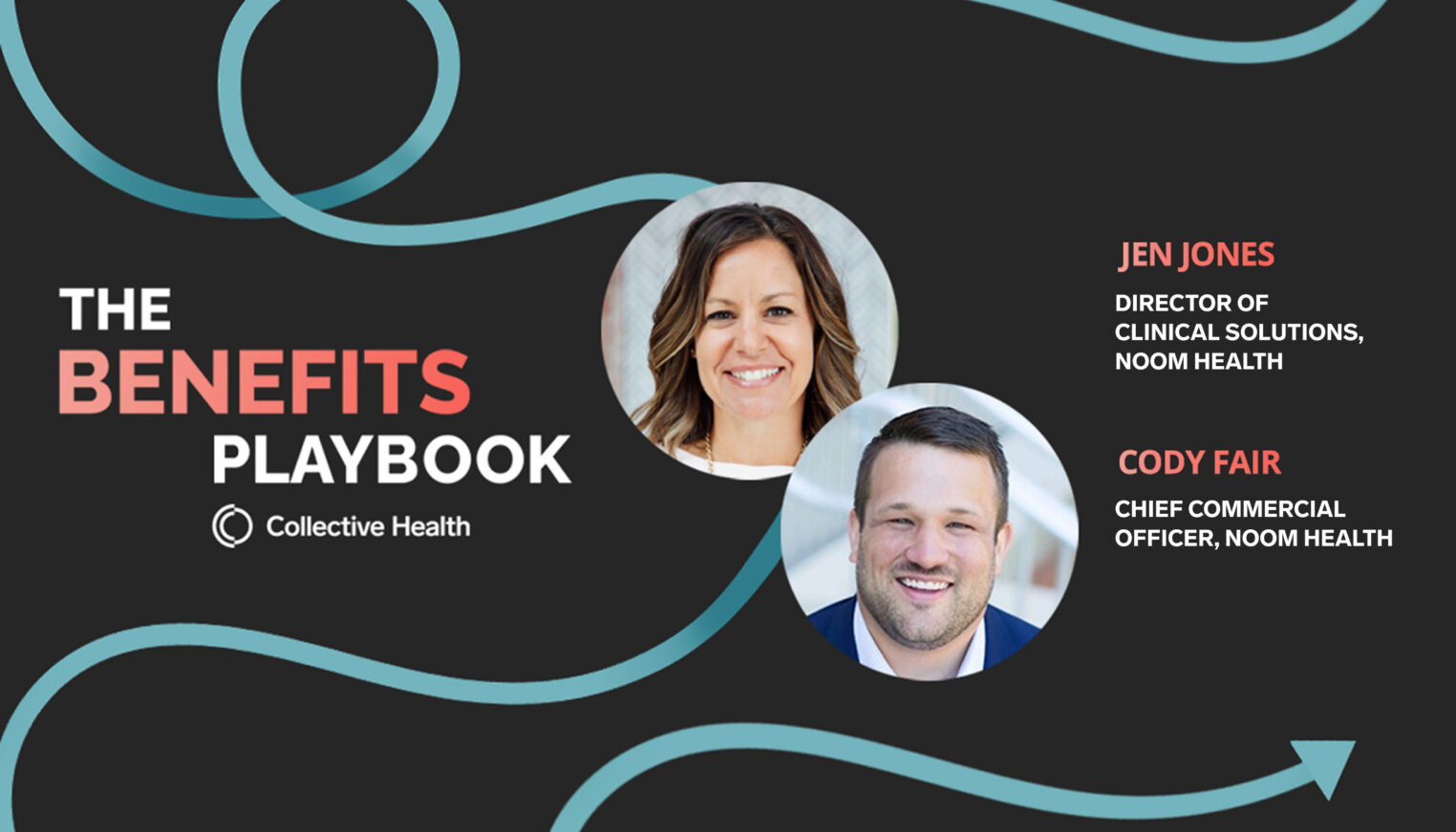A diverse workforce and inclusive environment can foster innovation and promote psychological safety. It starts with addressing unconscious bias within your employee population.
DEIB goals are increasingly important for HR teams, but many are still getting acquainted with the DEIB space. If you are wondering, “What is DEIB?” and what you can do to create a more inclusive workplace for underrepresented groups, keep reading to learn about DEIB best practices in the workplace.
What Does DEIB Stand For?
DEIB stands for Diversity, Equity, Inclusion, and Belonging. It has emerged as a pillar for business and Human Resources strategies as companies turn their focus to building inclusive workplaces that drive sustainable growth and innovation.
- Diversity refers to how diverse a company is, not only in terms of race and gender, but also sexual orientation, age, national origin, physical ability, religion, and more. For example, working for ethnically diverse companies doesn’t mean everyone feels valued or welcome–a challenge we discuss a bit later.
- Equity represents how fair and impartial the workplace is, with the goal of ensuring that all employees have equal opportunities to grow and progress. It also means creating room for underrepresented voices, tackling unconscious biases, and providing inclusive, culturally competent care through your health plan.
- Inclusion highlights the importance of creating a welcoming environment for all, not just ensuring that people are treated fairly. Both in policy and in practice, employers should focus on making sure that everybody is heard and has the opportunity to surface their opinions, not just those that are comfortable in the spotlight.
- Belonging is a newest addition to DEIB values and the last part of the puzzle. It represents the affinity and positive relationships that emerge between employees of various backgrounds when businesses actively promote diversity, equity, and inclusion within the workplace.
Yet, diversity, equity, inclusion, and belonging are about more than just hitting a certain percentage of each underrepresented group. It’s about creating an equitable workplace that can drive meaningful change and have a positive impact on the employee experience within the organization.
Why is DEIB important?

As humans, we are programmed with unconscious biases that are a result of how the brain works, but also of the environment, values, and belief system we grow up in. DEIB efforts are designed to foster a diverse workforce, but this diversity can also bring ingrained negative beliefs to the forefront.
The benefits of DEIB initiatives
While some might argue that such policies seem a bit wooly or are simply unnecessary, they would be wrong. There is a wealth of evidence that diversity contributes in a myriad of ways to your company’s overall performance.
Employees who say their organization’s senior leaders are diverse are more than twice as likely to feel a strong sense of belonging. After all, when your people feel appreciated and welcome, they’re more engaged and productive. When you prioritize DEIB, here are some proven benefits that it can achieve:
- Innovation: one study found that higher gender diversity and diverse educational backgrounds promote innovation. Furthermore, another study found that companies with a broad spread of age groups were better at innovation than those with polarized age groups.
- Creativity and problem-solving: inclusive environments that demonstrate diversity in terms of cognition, identity, and preference tend to display more effective and creative problem-solving in organizations.
- Financial performance: research by McKinsey on the topic of diversity, equity, and inclusion show a clear case for diversity at the highest levels of the organization. The most gender and ethnically diverse executive teams were consistently more likely to deliver above-average financial results.
Building an inclusive workplace

DEIB is about building a workforce that is representative of our society by ensuring that employees and job seekers have equal access to the same opportunities as peers, regardless of their differences.
Diversity in leadership roles
While it might be easier to demonstrate success by increasing diversity in lower-skilled positions, your DEIB strategy should get buy in from leadership roles! Not only is it likely to support better financial results, but more importantly, your executives are the faces of your organization and the thought leaders within your organization.
DEIB creates a ripple effect that flows through down the entire workforce. In addition to bolstering employee engagement, it can strengthen retention strategies and help you attract talent from underrepresented groups.
Health benefits and DEIB strategy
One of the most direct ways of giving employees a sense of belonging in the workplace is with your health plan. Nowadays, many point solutions offer inclusive care and culturally competent care options for underrepresented groups.
When vetting providers for inclusive healthcare options, there are a number of different ways equity and inclusion come to life. To start off with, you can look for partners that offer BIPOC providers to support members from diverse backgrounds.
How to retain and attract women in the workplace by Collective Health
How to retain and attract women in the workplace by Collective Health
At a deeper level, point solutions that offer care options specifically tailored to the challenges facing the underrepresented groups in your employee population. In terms of mental and behavioral health partners, you might want to take into account employee needs regarding gender identity or stigma.
When it comes to fertility and family-building providers, which are growing in popularity, choose a point solution provider that offers paths to parenthood for same-sex couples, transgender members, not only cis-gendered members.
For most companies with self-funded health plans, partnering with a third party administrator like Collective Health can streamline the point solution selection process and help you identify the right solutions to support your belonging and inclusion initiatives.
Feedback and performance reviews
One of the trickiest parts of DEIB initiatives is driving awareness within your organization about implicit biases and how they can subtly influence hiring practices, performance evaluations, and promotion decisions.
These types of unconscious beliefs often diverge from people’s expressed opinions and are so subtle that most people are unaware of them. They often emerge as a result of incomplete or inaccurate information and don’t necessarily manifest themselves in obvious ways.
Rather they tend to have an invisible influence on decision-making, which can have an impact on many aspects of the business, including hiring diverse talent, business decisions, and the sense of belonging within the company. Common biases that have an impact on the sense of belonging with your company include:
- affinity bias
- ageism
- confirmation bias
- gender bias
- halo effect
- horns effect
To combat self-limiting behaviors that can affect equity, inclusion, and belonging, start with bias training, which is a critical component of any DEIB strategy. If your organization commits to DEIB training, make sure specific modules focus on conducting performance evaluations and delivering constructive feedback.
Employee resource groups (ERGs)
When organizations commit to DEIB initiatives, they often start by supporting ERGs focused on the challenge they are most familiar with. For example, at Collective Health, equity and belonging in the workplace truly comes to life here. There is an employee resource group for a variety of different social identities within our company.
They also help build a culture of inclusion that supports belonging, helps people feel valued, and encourages innovative collaboration and problem-solving within the company. Plus, with so many employees now working remotely, these forums are excellent places for employees to share their experiences and perspectives.
HR leaders (or Chief Diversity Officers for some lucky companies) who want to place more emphasis on diversity and inclusion can help employees start up ERGs and provide opportunities to surface and share their work. Here are some strategies we use at Collective Health:
- Safeguarding time and space for ERG activities
- Sharing their work and victories internally and externally
- Makes financial resources available for ERGs
- Encourage senior leaders to get involved
Measuring DEIB

It’s critical that your company has a clear reporting structure for DEIB metrics. It starts with people analytics and collecting feedback on a regular basis from your workforce on their sense of belonging.
You also need to connect your DEIB strategy to your talent, retention, and employee promotions programs. These key areas ultimately determine whether you will be providing equal access to opportunities within the organization.
Marginalized employees may not feel empowered to speak up, share their views, or highlight their successes on projects in divisive work environments. For this reason, it’s essential to have reliable and clear criteria for career development. Not only will it help your people feel valued, it will also strengthen your talent recruitment opportunities.
Get started with inclusive health plans
DEIB may seem like a formidable undertaking at first, but implementing these strategies have the power to drive business growth and create an inclusive workplace where everyone feels welcome.
At Collective Health, as your health benefits partner, we’re committed to helping organizations achieve their diversity, equity, and inclusion goals via their health plan with thoughtful solutions that meet the needs of diverse employees.

Learn how we can help you reach your goals by taking a self-guided tour of the Collective Health platform.



